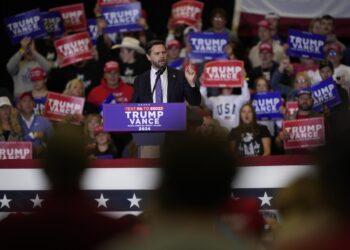US State Department,
Washington DC: U.S. officials say the National Space Policy, released in October 2006, is the natural evolution of a half-century of space-related policies, and that China's anti-satellite test in January, though cause for concern, is not part of a new “arms race” in orbit.
Also, some technical experts and members of Congress have expressed concern that President Bush's policy conveys a unilateralist attitude toward the “weaponization” of space. But State Department and Pentagon officials told Congress that conventional arms-control treaties are not effective in space-related activities because such treaties cannot be enforced.
The issue of weaponizing space was discussed by U.S. government officials, independent analysts and private-sector representatives during a May 23 hearing convened by the House Oversight and Government Reform Subcommittee on National Security and Foreign Affairs.
The U.S. National Space Policy emphasizes freedom of action in space. Spacecraft and satellites are crucial to much of modern communication and trade, and protecting these assets is a high priority for U.S. national interests. (See related article.)
According to the Union of Concern Scientists, there are approximately 845 working satellites owned or operated by 41 nations. A dozen nations are capable of launching their own satellites, and others seek that capability. The commercial satellite industry produced $88.8 billion in revenue in 2005.
James Clay Moltz of the Center for Nonproliferation Studies testified that nonmilitary use of space continues to grow, with a company called Virgin Galactic planning commercial suborbital flights as early as 2009 and Bigelow Industries planning orbital trips to space stations for paying customers as early as 2010.
“What matters is that there will be a growing number of people in low-earth orbit who could be harmed by weapons-testing and the related generation of orbital debris,” Moltz testified.
The United States remains committed to long-standing principles of the free use of space for peaceful purposes, the State Department's Donald Mahley said. Mahley is acting deputy assistant secretary of state for threat reduction, export controls and negotiation.
“There is great continuity between the president's capstone National Space Policy and the space policy signed [more than a decade earlier] by President Clinton,” Mahley said. He said that basic principles for the use of space were articulated half a century ago by President Eisenhower and remain in effect today. “Foremost among these principles is our nation's commitment to the free exploration and use of outer space by all nations for peaceful purposes and for the benefit of all humanity,” Mahley said.
Major General James Armor, director of the Defense Department's National Security Space Office, testified that U.S. policy in space has been “remarkably consistent” and includes “the inherent right of self-defense to protect U.S. national interests in space.” At the same time, Armor said, “the United States will continue to be the model for responsible behavior in space and will continue to encourage others to adopt similar behaviors and comply with the current legal regime.”
On January 11, China conducted an anti-satellite test by using an earth-based missile to destroy a Chinese weather satellite, creating a debris field that officials from the United States and other nations say could endanger orbital missions for decades. (See related article.)
“China's testing of a direct-ascent anti-satellite system and the on-orbit destruction of a satellite, resulting in thousands of pieces of long-lived orbital debris, is not responsible behavior for a space-faring nation,” Armor said. He added that the act was “not consistent” with China's stated positions on preventing an arms race in space, seeking a treaty banning space weapons and pursuing cooperation on nonmilitary space issues. The United States and the former Soviet Union concluded decades ago that such tests are too dangerous because their debris trails can endanger other satellites and manned missions.
“Despite China's claim that the ASAT [anti-satellite] test was a peaceful scientific experiment and was not directed at any specific state, the test has to date generated over 1,600 pieces of trackable debris and will present an increased risk to both human spaceflight and satellites for the next 100 years,” Mahley said.
China and Russia have sought international discussion for a possible treaty to prevent an “arms race” in space, but U.S. officials say such a treaty would be difficult or impossible to enforce.
“China's counter-space developments do not represent a so-called 'arms race in outer space,'” Armor testified, “and arms control is not a viable solution to the challenges posed by potential adversaries seeking to counter the U.S. advantage in space.”
According to Mahley, the treaty proposal by China and Russia would ban only the testing and use of ground-based anti-satellite weapons, but would not prevent the research, development or deployment of such weapons.
Such a treaty would not improve existing treaties in place for 40 years, Mahley said. Since the 1970s, the United States has recognized “the impossibility of formulating a space arms-control treaty,” he said. Problems include: the impossibility of effectively verifying compliance; the difficulty of defining what constitutes an anti-satellite weapon; and the risk of “breakout” from the agreement by covertly developing or deploying prohibited or constrained capabilities to gain a military advantage.
Mahley said the Bush administration will oppose the creation of arms-control regimes that seek to limit U.S. access to space or to impair U.S. rights to conduct research, development and testing operations in space.









